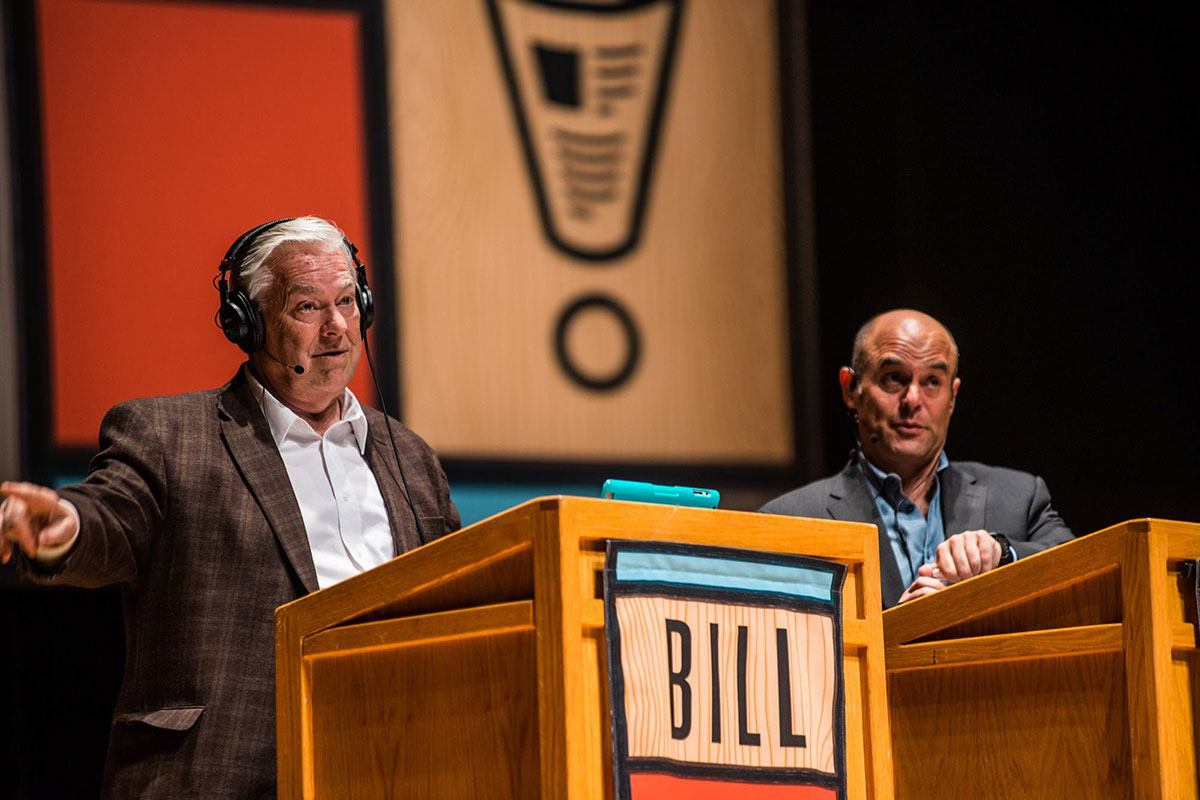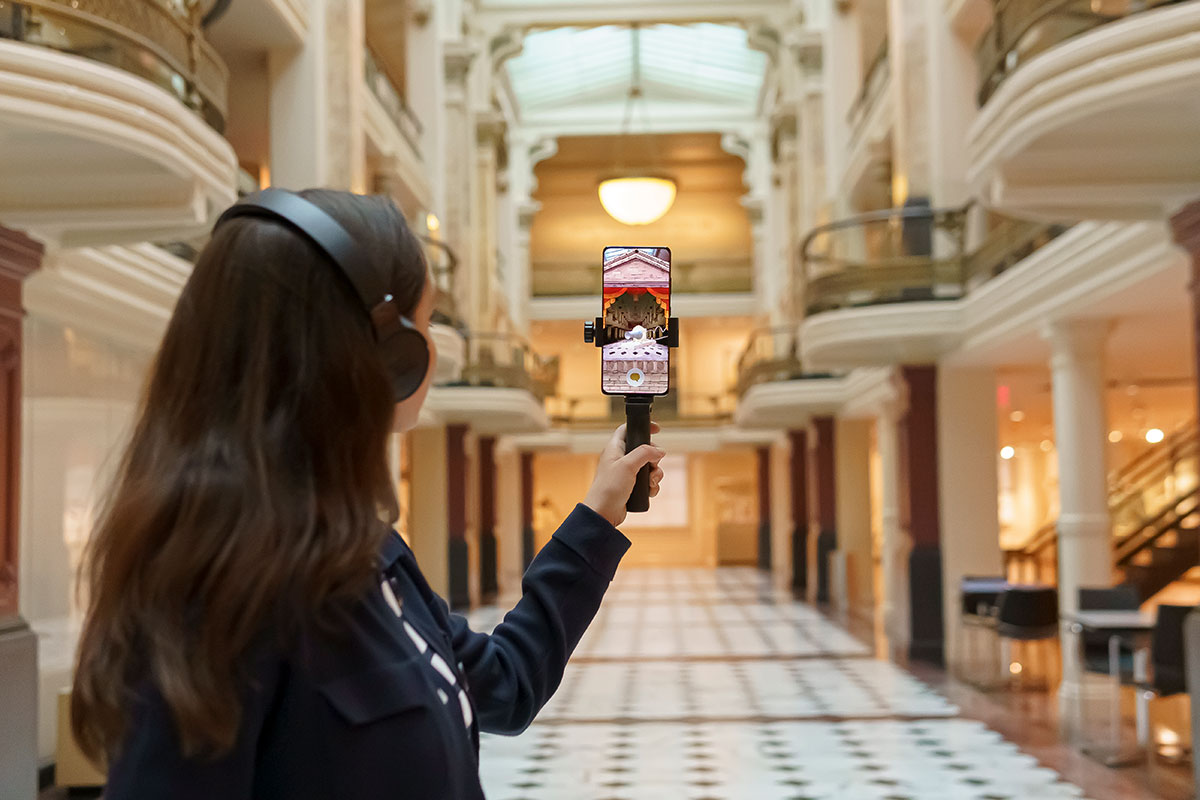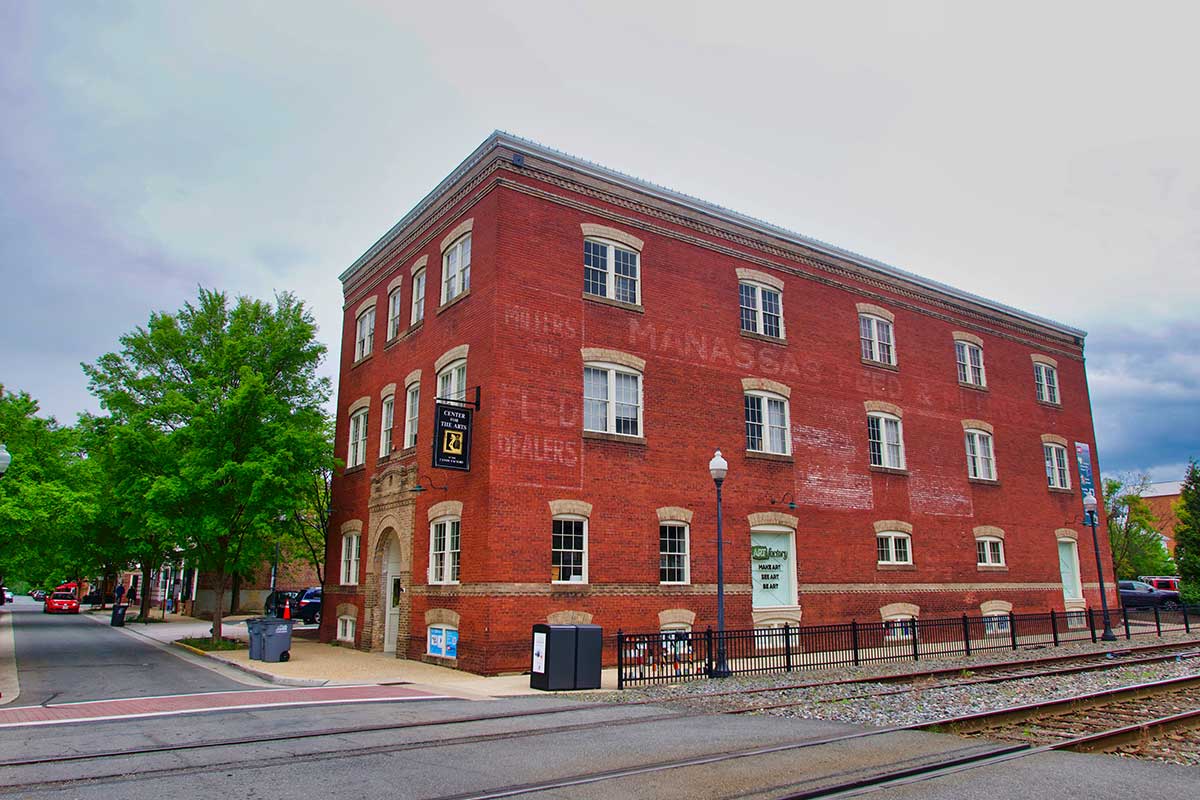
For the fourth year in a row, National Public Radio (NPR) fans will have the chance to laugh along with host Peter Sagal and announcer Bill Kurtis for not one, but two nights of Wait Wait … Don’t Tell Me! in Northern Virginia.
The dynamic game show, which pushes listeners and celebrity guests to test their knowledge on world news and entertainment, has been an NPR staple for almost 22 years. Each week, celebrity panelists are invited to dismantle what’s real and what’s fake in the daily news, all while playing off the witty banter of Sagal and Kurtis, who are legends in their own right in the media industry and beyond.
At this year’s performances, being held on on Aug. 29 and Aug. 30, the panelists will include actor Peter Grosz, comedian Negin Farsad, local style writer for The Washington Post, Roxanne Roberts and more. Plus, Sagal promises some guest appearances from well-known individuals in the District, such as chef José Andrés.
While this is not the first time Sagal has visited Northern Virginia for a show, he still remarks: “It’s kind of stunning to me that someone like me gets to perform on that stage.”
In preparation for two nights of jokes about daily headlines and the individuals that encompass them in the political capital of the world, Sagal and Kurtis share how the quiz show comes to fruition and why it’s so important today, below.
How much preparation is involved in the writing of each script?
PS: It’s really a process of research, writing and collaboration. We are a lot like other comedy writers rooms—a lot of pitches, attempts to make each other laugh, constant vetting—and we start every week on Monday. We discuss what we should talk about, what we shouldn’t and what we need to talk about. It’s a huge process of research because all of our content is based on the news.
A lot of the times, one of the things that happens is we try all these ideas and you have to go through them to get something original. But really, what makes us different than other shows is that while we write and prepare a lot, it’s all just so we can go into it with our panelists and our guests and see what happens. We do a lot of preparation to be spontaneous. It’s why I think our show has appeal. You’re hearing, as a listener, content that we come up with in the moment, which is sometimes the best stuff.
BK: For me, the writing is done primarily by Peter and a team, much like The Late Show with Stephen Colbert. There’s an interesting creative community, everybody is sort of connected because there’s a special talent in writing jokes. For me, I’ve been a newsman all my life so I get to kick back and read their plans. I’m along for the ride and it’s a great time.
Peter, you’ve been a host since the show started in 1998. How does your experience as an author, playwright and journalist, among other things, impact your role on the show?
PS: I’ve been extraordinarily fortunate that the thing I stumbled into has not only turned into a career, but it’s given me the chance to reach people in an incredible way. People depend on us to make them laugh, and I get to do this show with my friends every week.
When I think about what prepared me for it other than the fact that I was the rude guy in the back of the classroom, I’d say the fact that I was a playwright gives me the ability to hear what sounds good. I’m kind of creating live dialogue on the fly. And the weird thing is, once we started doing it in front of a live audience, I became more confident.
How do you find that balance between the discourse of the news today and the lighthearted nature of your show?
PS: If there’s any one concept that we think about more than any other topic when we plan, it is exactly that. We think, what does our audience really want from us? We know that they want us to talk about the major stories in the news, which tend to all revolve around one person, and we know they want us to say something about them. And there’s a real value in that for our listeners, especially the public radio listeners, because everything they listen to is balanced. We are not. We are the jokesters, jesters and clowns at the back of the classroom.
We know our audience looks forward to our show as a break from all the news. They want the stuff that’s not scary and life threatening. So every week, it’s about what our audience needs to hear and what will relieve them? It’s always a balance, because on the one hand, if we totally ignore the constant chaos coming out of Washington, our audience would start to lose trust in us, but if we do it too much then we are part of the problem. We meet listeners every time we do the show and honestly I’m just like them. I’m caught between wanting to know but it also exhausts me.
BK: We all kind of live with it. We started thinking about it, being like, “Hey, this will be great” for NPR. And we go through these periods of uncertainty and now, it’s kind of hard to be funny about it because the reality is it’s not funny anymore. And with the Trump administration there was a conversation about what to do. But we realized people listen to us because they want some release, they want to let the air out and make fun of these situations.
For me, I was an anchor, a correspondent and everything else for all those years. You were never “allowed” to laugh, smile or any of that. I feel released and free on this show. I can have fun with what’s going on outside of the studio. It’s a jolly old time.
What’s it like working with one another?
PS: Bill Kurtis is just the best. He’s a lot like my former co-host, Carl Kasell, in that they both have had successful careers in media. What makes them similar is that late in life they were given the chance to do something different, not for the money or for the work, but just because they enjoy it. That affects Bill’s performance and his presence, he really lightens up the room. People don’t understand the extent to which he is such a news source—he actually kind of inspired the character of Ron Burgundy in Anchorman. The way that Ron Burgundy was set up as this giant icon, that was bill in Chicago in the ’70s and ’80s, so for him to come and lend us that gravitas is really fun and exciting.
BK: Peter is incredibly bright. He is an intellectual, in fact he is now invited yearly to go out to the Bohemian Grove—it’s a gathering of CEOs, businessmen, musicians, every summer where they celebrate theater and music. And Peter on the show portrays another level of humor that is unexplainable. We go to the rehearsal, and he will go in and play off the headlines of the day like it’s easy. We are great friends. He was actually recently married at my house in the backyard. I love working with him.
For tickets to the upcoming shows, click here. // Filene Center: 1551 Trap Road, Vienna; $45-$80
Want to be the first to know about all the best events coming to Northern Virginia? Subscribe to our weekly Things to Do e-newsletter.




